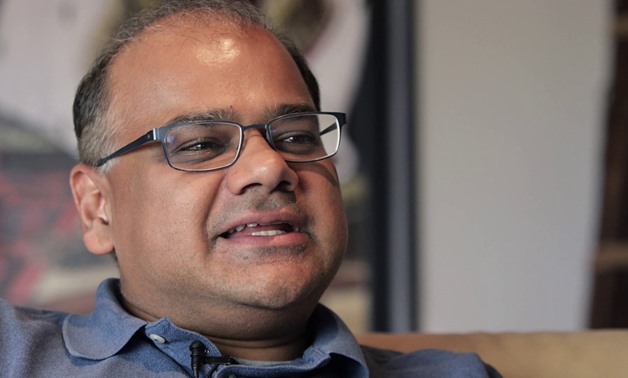
IMF’s Egypt Mission Chief Subir Lall – Photo courtesy to Youtube
CAIRO – 4 April 2018: Egypt's progress on macroeconomic stabilization has been very promising, yet the country needs further reforms to bolster its private sector and job creation, the International Monetary Fund's (IMF) Mission Chief for Egypt Subir Lall told Egypt Today.
The IMF Executive Board approved in November 2016 a three-year Extended Fund Facility (EFT) loan to Egypt worth $12 billion to support its economic reform program. Cairo has received three tranches of its loan worth a total of $6.08 billion. A fourth $2 billion disbursement is expected in June after concluding the program's third review.
On Monday, the National Elections Authority announced in a press conference that President Abdel Fatah al-Sisi garnered 97.08 percent of valid votes in the presidential election that took place from March 26-28, where more than 21.8 million people voted for him.
Sisi's contender, al-Ghad Party Chairperson Moussa Moustafa Moussa, received 656,534 votes, making up 2.9 percent of the valid ballots. The turnout stood at 24,254,152 voters; 41 percent of the electorate.
Asked about the impact of Sisi's victory on Egypt's economic reform program, and if it would guarantee the authorities' commitment to further advance in these reforms, IMF's Mission Chief for Egypt Subir Lall said that, "the IMF doesn’t comment on political developments in any of our member countries."
While the IMF official praised the progress on macroeconomic stability, describing it as "very promising," with inflation and budget deficits going down and growth gaining momentum, he highlighted the need to sustain high and inclusive growth.
In order to reach this goal, "Egypt needs to build on the efforts thus far with a new wave of reforms in support of private sector development and job creation," he explained.
Lall added that further steps are needed to strengthen governance and competition, better integrate women and youth in the labor market, improve access to land, limit the role of the state, and strengthen social policies to protect the most vulnerable.
"Continued progress on fiscal reforms is also essential to provide the needed fiscal space to reinvest in infrastructure, health and education and well targeted social spending aimed at those who need it the most," he concluded

Comments
Leave a Comment